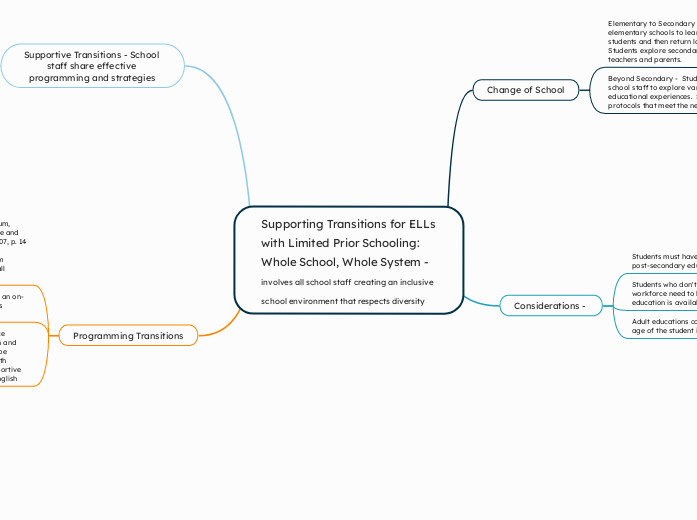Supporting Transitions for ELLs with Limited Prior Schooling: Whole School, Whole System - involves all school staff creating an inclusive school environment that respects diversity
Change of School
Elementary to Secondary -Secondary teachers visit elementary schools to learn about incoming students and then return later to share information. Students explore secondary school options with teachers and parents.
Beyond Secondary - Students have support of school staff to explore various career options and educational experiences. School boards have protocols that meet the needs of their community.
Considerations -
Students must have support with and access to post-secondary education.
Students who don't graduate but enter the workforce need to be aware that future formal education is available
Adult educations courses may be an option if the age of the student is a factor
Supportive Transitions - School staff share effective programming and strategies
Build cross-curricular connections, use former students as role models, build a personal portfolio, initiate leadership opportunities, partner with the elementary school, partner with colleges and universities, partner with continuing education, partner with community
Programming Transitions
ELD to ESL Program -The Ontario Curriculum, Grades 9–12: English as a Second Language and English Literacy Development, Revised, 2007, p. 14 provides information about how students transition from ELD to ESL and mainstream courses. This pathway is not the same for all students.
Integration into mainstream programs - is an on-going process, is increased with time and is tailored to the individual student
Cooperative education and other workplace experiences - level of proficiency in English and their experience in Canadian society must be considered. The students may be placed with mentor from their own culture to be a supportive role model and offer guidance in F1 and English
